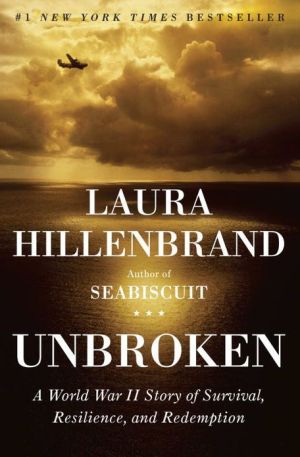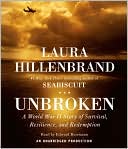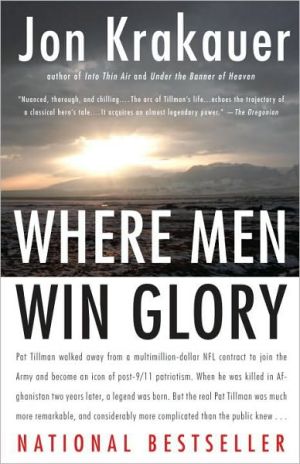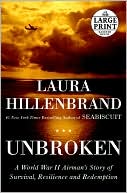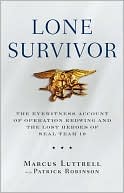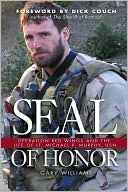War Is a Force that Gives Us Meaning
As a veteran war correspondent, Chris Hedges has survived ambushes in Central America, imprisonment in Sudan, and a beating by Saudi military police. He has seen children murdered for sport in Gaza and petty thugs elevated into war heroes in the Balkans. Hedges, who is also a former divinity student, has seen war at its worst and knows too well that to those who pass through it, war can be exhilarating and even addictive: “It gives us purpose, meaning, a reason for living.” Drawing on his...
Search in google:
Mixing hard-nosed realism with profound moral and philosophical insight, war correspondent Hedges shows how war seduces entire societies, corrupting politics, destroying culture, and perverting basic human desires. Unabridged. 5 CDs. Jonathan Power If...I thought Bush and Blair would give it time I would happily send them a copy to read.
1\ The Myth of War\ The ethnic conflicts and insurgencies of our time, whether between Serbs and Muslims or Hutus and Tutsis, are not religious wars. They are not clashes between cultures or civilizations, nor are they the result of ancient ethnic hatreds. They are manufactured wars, born out of the collapse of civil societies, perpetuated by fear, greed, and paranoia, and they are run by gangsters, who rise up from the bottom of their own societies and terrorize all, including those they purport to protect.\ Often, none of this is apparent from the outside. We are quick to accept the facile and mendacious ideological veneer that is wrapped like a mantle around the shoulders of those who prosecute the war. In part we do this to avoid intervention, to give this kind of slaughter an historical inevitability it does not have, but also because the media and most of the politicians often lack the perspective and analysis to debunk the myths served up by the opposing sides.\ The United States and the West based our responses in Bosnia, or perhaps it is better to say our arguments not to respond, on such myths: the myth of the Serbian warrior who would fight to the death against overwhelming odds; the myth that the Croats, Muslims, and Serbs, who speak the same language and are nearly indistinguishable, were different people; the myth that Yugoslavia, a country that Josip Broz Tito made an important player in international affairs, had failed to give its citizens a national identity. These myths, swallowed whole, permitted us to stand by as 250,000 human beings were killed and Sarajevo spent three and a half years under siege. Although the United States finally intervened, we did so because the United Nations mission collapsed in the summer of 1995, not because of any foresight or courage on the part of the administration of President Bill Clinton.\ Look not to religion and mythology and warped versions of history to find the roots of these conflicts, but to the warlords who dominated the Balkans. It took Milosevic four years of hate propaganda and lies, pumped forth daily over the airways from Belgrade, before he got one Serb to cross the border into Bosnia and begin the murderous rampage that triggered the war. And although the war was painted from afar as a clash of rival civilizations, the primary task of Milosevic in Serbia, Franjo Tudjman in Croatia, and the other ethnic leaderships was to dismantle and silence their own intellectuals and writers of stature and replace them with second-rate, mediocre pawns willing to turn every intellectual and artistic endeavor into a piece of ethnic triumphalism and myth.\ Lawrence LeShan in The Psychology of War differentiates between "mythic reality" and "sensory reality" in wartime.1 In sensory reality we see events for what they are. Most of those who are thrust into combat soon find it impossible to maintain the mythic perception of war. They would not survive if they did. Wars that lose their mythic stature for the public, such as Korea or Vietnam, are doomed to failure, for war is exposed for what it is—organized murder.\ But in mythic war we imbue events with meanings they do not have. We see defeats as signposts on the road to ultimate victory. We demonize the enemy so that our opponent is no longer human. We view ourselves, our people, as the embodiment of absolute goodness. Our enemies invert our view of the world to justify their own cruelty. In most mythic wars this is the case. Each side reduces the other to objects—eventually in the form of corpses.\ "Force," Simone Weil wrote, "is as pitiless to the man who possesses it, or thinks he does, as it is to its victims; the second it crushes, the first it intoxicates."2\ When we allow mythic reality to rule, as it almost always does in war, then there is only one solution—force. In mythic war we fight absolutes. We must vanquish darkness. It is imperative and inevitable for civilization, for the free world, that good triumph, just as Islamic militants see us as infidels whose existence corrupts the pure Islamic society they hope to build.\ But the goal we seek when we embrace myth is impossible to achieve. War never creates the security or the harmony we desire, especially the harmony we briefly attain during wartime. And campaigns, such as the one in Afghanistan, become starting points for further conflicts, especially as we find that we are unable to root out terrorism or maintain the kind of solidarity that comes in the days just after a terrorist attack.\ The chief institutions that disseminate the myth are the press and the state. The press has been culpable since the telegraph made possible the modern war correspondent. And starting with the Crimean War, when the first dispatches were fed by newly minted war correspondents in real time, nearly every reporter has seen his or her mission as sustaining civilian and army morale. The advent of photography and film did little to alter the incentive to boost morale, for the lie in war is almost always the lie of omission. The blunders and senseless slaughter by our generals, the execution of prisoners and innocents, and the horror of wounds are rarely disclosed, at least during a mythic war, to the public. Only when the myth is punctured, as it eventually was in Vietnam, does the press begin to report in a sensory rather than a mythic manner. But even then it is it reacting to a public that has changed its perception of war. The press usually does not lead.\ Mythic war reporting sells papers and boosts ratings. Real reporting, sensory reporting, does not, at least not in comparison with the boosterism we witnessed during the Persian Gulf War and the war in Afghanistan. The coverage in the Persian Gulf War was typical. The international press willingly administered a restrictive pool system on behalf of the military under which carefully controlled groups of reporters were guided around the front lines by officers. It could have never functioned without the cooperation of the press. The press was as eager to be of service to the state during the war as most everyone else.\ Such docility on the part of the press made it easier to do what governments do in wartime, indeed what governments do much of the time, and that is lie. When Iraqi troops seized the Saudi border town of Khafji, sending Saudi troops fleeing in panic, the headlong retreat was never mentioned. Two French photographers and I watched as frantic Saudi soldiers raced away from the fighting, dozens crowded on a fire truck that tore down the road. U.S. Marines were called in to push the Iraqis back. We stood on rooftops with young Marine radio operators who called in air strikes as Marine units battled Iraqi troops in the streets.\ Yet back in Riyadh and Dhahran military press officers spoke about our Saudi allies defending their homeland.\ The potency of myth is that it allows us to make sense of mayhem and violent death. It gives a justification to what is often nothing more than gross human cruelty and stupidity. It allows us to believe we have achieved our place in human society because of a long chain of heroic endeavors, rather than accept the sad reality that we stumble along a dimly lit corridor of disasters. It disguises our powerlessness. It hides from view our own impotence and the ordinariness of our own leaders. By turning history into myth we transform random events into a chain of events directed by a will greater than our own, one that is determined and preordained. We are elevated above the multitude. We march toward nobility. And no society is immune.\ Most national myths, at their core, are racist. They are fed by ignorance. Those individuals who understand other cultures, speak other languages, and find richness in diversity are shunted aside. Science, history, and psychology are often twisted to serve myth. And many intellectuals are willing to champion and defend absurd theories for nationalist ends.\ By finding our identity and meaning in separateness the myth serves another important function: It makes communication with our opponents impossible. When the Palestinian leader Yasir Arafat makes statements that call for moderation and peace he is accused by the Israelis of using words to conceal his intention to wipe out Israel. The Palestinians react in the same manner to statements by most Israeli leaders. It does not matter what they say, just as it did not matter what the Serb or Croat nationalists said to each other; the intentions of the other were predetermined by nationalist myth.\ We often become as deaf and dumb as those we condemn. We too have our terrorists. The Contras in Nicaragua carried out, with funding from Washington, some of the most egregious human rights violations in Central America, yet were lauded as "freedom fighters." Jonas Savimbi, the rebel leader the United States backed in Angola's civil war, murdered and tortured with a barbarity that far outstripped the Taliban. The rebellion Savimbi began in 1975 resulted in more than 500,000 dead. President Ronald Reagan called Savimbi the Abraham Lincoln of Angola, although he littered the country with land mines, once bombed a Red Cross-run factory making artificial legs for victims of those mines, and pummeled a rival's wife and children to death. The mayhem and blood-letting we backed in Angola were copied in many parts of Africa, including Zaire and Liberia.\ The myth of war sells and legitimizes the drug of war. Once we begin to take war's heady narcotic, it creates an addiction that slowly lowers us to the moral depravity of all addicts. War's utter depravity was captured in Shakespeare's play Troilus and Cressida, a work that as far as is known was never performed in Shakespeare's lifetime, perhaps due to its savage indictment of war and human society. Nearly every figure in the play, including Ulysses, lies to and tries to manipulate those around him: that is the trait of most leaders, no matter what political agenda they espouse. Here, unlike Henry V, Shakespeare excoriates the established order; the play is one that debunks national myth. There are only three characters who speak about war with any sanity or truth: Pandarus, who is a lecher and a coward; Cassandra, who is deranged; and Thersites, as described by Shakespeare, "a deformed and scurrilous Greek."3 Yet Thersites' bleak view of human nature and human folly is borne out by the play's end. We are left with the realization that characters who are, by the standards of civil society, the most retrograde stand above the baseness of those who prosecute war, if only because they speak the truth.\ "Lechery, lechery, still wars and lechery, nothing else holds fashion," Thersites rails.4\ War can be the natural outcome of brutal repression; witness Kosova or El Salvador. Or it can be manufactured by warlords intent on enrichment, as in Bosnia. It can also, although less and less, be the result of vying interests between nation-states, such as the Gulf War, fought over control of the oil fields in Kuwait. War, at times inevitable and unavoidable, is part of human society. It has been since the dawn of time—and probably will be until we are snuffed out by our own foolishness.\ "We believed we were there for a high moral purpose," wrote Philip Caputo in his book on Vietnam, Rumor of War. "But somehow our idealism was lost, our morals corrupted, and the purpose forgotten."5\ The employment of organized violence means one must, in fact, abandon fixed and established values. This is a truth made apparent in Troilus and Cressida. It is a truth Henry V ignores. Once war, and especially the total war that marked both the ancient and the modern way of battle, erupts, all is sacrificed before it. The myth of war is essential to justify the horrible sacrifices required in war, the destruction and the death of innocents. It can be formed only by denying the reality of war, by turning the lies, the manipulation, the inhumanness of war into the heroic ideal. Homer did this for the Greeks, Virgil for the Augustan age, and Shakespeare for the English in his history plays. But these great writers also understood what they were doing, and thus in the canon of their works come moments when war is laid bare.\ Troilus, at the start of the play, states that he will not fight for Helen, a woman portrayed by Shakespeare as a mindless paramour. "It is," he says, "too starved a subject for my sword."6 Dying for this Helen, who has neither morals nor wit, is absurd. Yet I have seen men fight for even more ridiculous reasons. There was no reason for the war in Bosnia. The warring sides invented national myths and histories designed to mask the fact that Croats, Muslims, and Serbs are nearly indistinguishable. It was absurd nuances that propelled the war, invented historical wrongs, which, as in the Middle East, stretched back to dubious accounts of ancient history. I have heard Israeli settlers on the West Bank, for example, argue that Palestinian towns, towns that have been Muslim since the seventh century, belong to them because it says so in the Bible, a reminder that this sophistry extends beyond the Balkans.\ The competing nationalist propaganda in Yugoslavia created a conflict in the country best equipped of all the Eastern European states to integrate with the West after the collapse of communism. Because there was no real reason to fight, there was an urgent need to swiftly turn a senseless fratricide, one organized by criminals and third-rate political leaders for power and wealth, into an orgy of killing, torture, and mass execution. This indiscriminate murder, these campaigns of ethnic cleansing, were used to create facts, as it were. The slaughter was carried out to give to these wars the justifications they lacked when they began, to fuel mutual hatred and paranoia, as well as to enrich the militias and paramilitary groups that stole and looted from their victims. Ethnic warfare is a business, and the Mercedes and mansions of the warlords in Belgrade prove it. Fighting for a Helen who is a strumpet, or Don Quixote's Dulcinea, looks noble by comparison.\ ____________________\ Notes\ 1. LeShan, Lawrence, The Psychology of War (New York: Helios, 1992), Chapter Two.\ 2. Weil, Simone, 'The Iliad' or 'The Poem of Force,' (Wallingford, PA: Pendle Hill Pamphlet, 1993), p. 11.\ 3. Shakespeare, William, Troilus and Cressida –"Dramatis Personae," (Boston: Riverside Shakespeare, Houghton Mifflin, 1974), p. 448.\ 4. Ibid., Act V, sc. ii, p. 486.\ 5. Caputo, Philip, Rumor of War (New York: Holt, Rinehart & Winston, 1977), p. 345.\ 6. Shakespeare, William, Troilus and Cressida, (Boston: Riverside Shakespeare, Houghton Mifflin, 1974), Act I, sc. i, p. 450.
Introduction11The Myth of War192The Plague of Nationalism433The Destruction of Culture624The Seduction of Battle and the Perversion of War835The Hijacking and Recovery of Memory1226The Cause1427Eros and Thanatos157Notes187Bibliography192Acknowledgments196Index200
\ Slate.comHedges' account of the horrors of war follows a confession of rare and frightening honesty.\ \ \ \ \ Molly IvinsI highly recommend Chris Hedges' splendid little book...His understanding is profound and was earned on the ground.\ \ \ Jonathan PowerIf...I thought Bush and Blair would give it time I would happily send them a copy to read.\ \ \ \ \ New York Times Book ReviewA brilliant, thoughtful, timely and unsettling book...it will rattle jingoists, pacifists, moralists, nihilists, politicians and professional soldiers equally...\ \ \ \ \ Salon.comAs the 'war on terror' continues on its...potentially catastrophic course, America would do well to heed Hedges'...warning.\ \ \ \ \ Publishers Weekly"The communal march against an enemy generates a warm, unfamiliar bond with our neighbors, our community, our nation, wiping out unsettling undercurrents of alienation and dislocation," writes Chris Hedges, a foreign correspondent for the New York Times. In War Is a Force That Gives Us Meaning, Hedges draws on his experiences covering conflicts in Bosnia, El Salvador and Israel as well as works of literature from the Iliad to Hannah Arendt's The Origins of Totalitarianism to look at what makes war so intoxicating for soldiers, politicians and ordinary citizens. He discusses outbreaks of nationalism, the wartime silencing of intellectuals and artists, the ways in which even a supposedly skeptical press glorifies the battlefield and other universal features of war, arguing not for pacifism but for responsibility and humility on the part of those who wage war. Copyright 2002 Cahners Business Information.\ \ \ \ \ Foreign AffairsThis is an angry, articulate book — an act of therapy summed up by its ironic title. Hedges is an experienced war correspondent, but one unusually steeped in the scriptures, classics, and Shakespeare, struggling to make sense of the terrible things he has witnessed while covering conflicts in the Balkans, Africa, and the Middle East. Addressing his own inner urge to return to such scenes, he describes with vivid poignancy the brutalizing impact of war and the contrast between its noble claims and the misery it leaves in its wake. Hedges only occasionally discusses wars that involve regular forces, such as the Persian Gulf War, and he tends to concentrate on those (more common) post-Cold War conflicts driven by local passions, with close interaction between militias and their largely civilian victims and the media in close attendance. Hedges' thoughts on why wars start are at best sketchy, but his explorations of what happens when they do make this book a compelling read and a valuable counterweight to the more antiseptic discussions common among strategic analysts.\ \ \ \ \ Library JournalThis moving book examines the continuing appeal of war to the human psyche. Veteran New York Times correspondent Hedges argues that, to many people, war provides a purpose for living; it seems to allow the individual to rise above regular life and perhaps participate in a noble cause. Having identified this myth, Hedges then explodes it by showing the brutality of modern war, using examples taken from his own experiences as a war correspondent in Latin America, the Middle East, and the Balkans. These examples highlight the devastating effects of war on life, community, and culture and its corruption of business and government. Hedges is not a pacifist, acknowledging that people need to battle evil, but he thoughtfully cautions us against accepting the accompanying myths of war. This should be required reading in this post-9/11 world as we debate the possibility of war with Iraq. For all libraries.-Stephen L. Hupp, West Virginia Univ. Lib., Parkersburg Copyright 2002 Cahners Business Information.\ \ \ \ \ BooknewsHedges, a long-time foreign correspondent for , draws on his own experiences in Latin America, Bosnia, and elsewhere; treatments of war in literature; and historical events to examine the way human beings experience war and to suggest that war gives rise to dangerous myths of the nobility of the cause. He argues that there are very few people who are not susceptible to the allure of war, but that, in the end, war becomes a contest between and , in which comes out on top all too often. Annotation c. Book News, Inc., Portland, OR (booknews.com)\ \ \ \ \ From the Publisher"Bitterly poetic and ruthlessly philosophical . A powerful message to people contemplating the escalation of the 'war against terrorism.'" —-Los Angeles Times\ \

